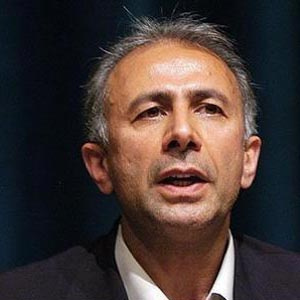Iran, United States and the Arab Square

On Monday, U.S. Secretary of State Hillary Clinton claimed that Obama’s outreach has not led to a positive response by Iran and called for further pressure on Iran. Does this mean U.S. is stepping away from diplomacy?
Various factors influence United States’ diplomacy towards Iran. Throughout the recent years, U.S. policies have ranged from pressure to ‘cooperation and pressure’ and ‘reward and pressure’ (carrot and stick). Despite all hopes, since Obama’s presidency the United States has exhibited no genuine intention to cooperate with Iran, at least as far as it concerns economic sanctions. The only occasion that witnessed an official meeting between Tehran and Washington was the encounter between Said Jalili and William Burns in Geneva negotiations but regarding diplomatic standards, a meeting at this level may not be considered as a step towards constructive cooperation.
Obama’s remarks and his language vis-à-vis Tehran are deemed as friendly gestures, but what has been carried out in actuality is not remarkable at all. As long as Americans are unwilling to make structural changes in their policy towards Iran, and as long as they refrain to offer Iran worthy incentives, Iran will not get on board.
Clinton’s remarks show that Iran-U.S. relations still suffer tension. Nevertheless, the tension is a relatively mild one which will continue to exist for a possibly long time. The two countries will also continue to criticize each other. In my opinion, it is unlikely that Americans change their diplomatic persuasion policy in the next six months.
Regarding Iran’s international status and domestic circumstances, can the presence of Obama at the head of US administration actually bring Iran any advantages?
At the end of the day, Obama thinks of his country’s interests. We shouldn’t think that Obama’s appeasing tone means he will compromise over United States interests and strategic objectives in the Middle East. Obama’s macropolicy is similar to Bush’s in 2007 and 2008, when radical neo-cons were removed from U.S. security and political apparatus, Donald Rumsfeld lost his seat to Robert Gates and Americans’ tone over Iran was tempered. Admiral Mullen and General Petraeus have not changed their approach since those days. To weather regional crises, Americans sometimes use a threatening tone, and at times they spice it up with offers of cooperation and diplomacy.
Is it the possibility of a compromise between Iran and West –or more specifically Iran and the United States- that has raised concerns among Arab states about being neglected? They want to be consulted.
Powerful Arab countries -these are Egypt, Saudi Arabia, Jordan and United Arab Emirates- have formed an alliance that functions at three levels. First, they have managed to achieve a strategic solidarity among themselves. Second, they are moving towards a tacit agreement with Israel, indeed an unprecedented situation in the past sixty-five years. At the third level, these countries have allied themselves with the United States on regional matters such as curbing Iran’s influence in Iraq and other countries. They are playing a multilateral zero-sum game against Iran. And they are definitely not fond of a likely Iran-U.S. reconciliation. The Arab Square - Egypt, Saudi Arabia, Jordan and UAE- are as opposed to this possibility as pro-Israel lobbies in the United States. Their role should be taken serious as they follow an anti-Iran policy and try to thwart any efforts that aim to bring Iran and the United States closer.
Saudi Arabia was a key supporter to Hillary Clinton during the 2008 election campaigns, when a heated competition was going on between her and Obama inside the Democratic Party. Arabs’ support for Clinton had irritated many electoral colleges and American media.

